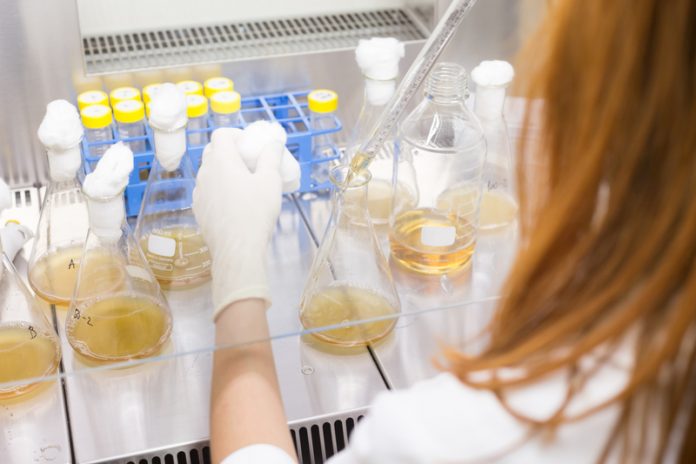Dean Billington, Chief Operating Officer at Brains Bioceutical, discusses the pivotal role of the life science sector in spearheading the post-Covid economic recovery and why driving forward R&D and innovation should be the nation’s top priority
The COVID-19 pandemic has triggered one of the most disruptive periods on record for many industries and labour markets and has thrown the world into one of the worst economic recessions in recorded history. In fact, the ongoing crisis has resulted in a £271 billion hole in the UK’s finances with GDP falling by 9.9% in 2020. Alongside this, 11 million people are currently furloughed, and by the end of the year, it is estimated that unemployment will rise to 6.5%.
Investment into life sciences
Now, as we look ahead to the post-COVID recovery, the UK is facing an almost insurmountable challenge. However, speeding up the pace of investment into the life sciences sector across the UK could help plug that gap and pull the nation back from the brink.
Without a doubt, the contribution of science, technology and innovation has been pivotal in helping to address the immediate health challenges of the COVID-19 crisis. From rapidly increasing diagnostic capacities and supporting the delivery of care in a time of unprecedented demand to leading the charge in the development of vaccinations and treatments – such activities have been at the forefront in tackling the outbreak. However, they can also play a crucial role in supporting the economic recovery after the pandemic.
The UK already has one of the most productive and established life science sectors, supporting around 240,000 jobs and generating an annual turnover of £70 billion. Now, a recent report has suggested that the life science sector could be responsible for a new wave of growth worth an extra £14 billion a year to the UK economy by 2025 and has the potential to create over 50,000 new jobs in the same period.
Without a doubt, the sector is a crucial pillar to the UK economy and remains pivotal to supporting a sustained period of economic recovery centred on innovation and productivity. However, if the industry is to generate the most economic value and jobs, it needs a strong pipeline for R&D investment and a skilled workforce.
From the discovery of DNA to the 100,000 genomes project, the UK as always been considered an industry leader for establishing pioneering R&D programmes which have the capacity to improve the lives of millions of individuals. Yet, as patterns from previous crisis evidence, R&D spending is typically pro-cyclical, with periods of slow GDP growth often triggering a decline in R&D funding.
Uncertain economy
Now, as the UK looks ahead to an extremely uncertain economic period, it is crucial that we do not fall back into this cycle.
Whilst the UK has the potential to have the most productive life science sector in the world, currently, the government’s spending on R&D is only set to hit 2.4% of GDP by 2027. If we are to keep pace with other advanced economies as we emerge from this pandemic, we need to propel science and technology to the forefront to open up a new space for development within these sectors.
To support a strong and successful life sciences sector, the foundation must be laid in R&D funding, policies and approaches that drive innovation and enable best value medicines and technologies to reach patients. Ensuring there is a pipeline of talent and investing in clinical trials infrastructure will also help solidify UK as a life sciences leader and ultimately address long-standing health inequalities and improve lives.
Further engagement with the NHS as a source of innovation and partner is critical and will require agility and collaboration.
Life sciences companies have a unique opportunity to reinforce their purpose and benefit to society that goes beyond just selling drugs and generating profits.
Pharmaceutical manufacturing
Now the government and leading industry bodies alike, need to bolster and unleash the full potential of the life science sector for it to grow and deliver value. In February, The Association of the British Pharmaceutical Industry (ABPI) and a number of other industry trade bodies united in a call on Chancellor Rishi Sunak to update R&D rules to help release further growth in tech and advanced manufacturing sectors. The Government also announced on the 7th April that life science companies can now apply to the new £20 million fund to expand the manufacturing of medicines, diagnostics and MedTech in the UK. The fund aims to offer a competitive advantage and boost the country’s ability to respond to future pandemics and support the government’s ambitions to ‘build back better’.
People use the essential products and services provided by life sciences and healthcare companies every day. This is not going to change but the way in which these companies design, develop and produce products/services will. The coming months and years are set to be the most challenging yet for the economy, society and industries, including the life science sector. However, if anything, periods of crisis create opportunities to re-evaluate policies, adapt practices and strengthen services & medicines for unmet needs and future challenges.
The COVID-19 pandemic has demonstrated how important the life science sector is and what can be achieved if there is cross-sector collaboration and large-scale funding. For the economic recovery to be durable and effective, we must avoid a return to ‘business as usual’ and look at how thriving sectors – such as life sciences – can be supported. Only by prioritising R&D and innovation can we facilitate this shift.











